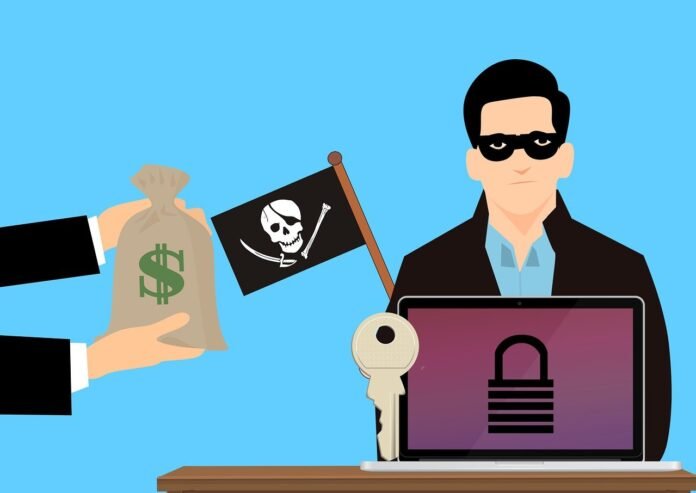A shadow of digital fear descended upon Lithuania on January 15th, 2024, as the notorious NoName ransomware group launched a coordinated attack on prominent websites of financial services, transportation, and telecom companies.
Banks, insurance providers, airlines, and communications giants saw their online portals breached, websites defaced, and access to vital services disrupted. This wasn’t just a cyber intrusion; it was a digital siege aimed at the heart of Lithuanian infrastructure, sending shockwaves through the nation and beyond.
NoName, known for its ruthless tactics and focus on extorting large sums from its victims, claimed responsibility for the attack through its dark web channels. The targeted companies included giants like Compensa Vienna Insurance Group, If Insurance, Lithuanian Roads Association, AD REM, INIT, and Balticum. Website outages and defaced homepages disrupted online banking, flight bookings, and communication services, sending ripples of confusion and frustration through the Lithuanian public.
While the full extent of the damage and potential data breach remains under investigation, the attack exposed the inherent vulnerabilities of critical infrastructure in the digital age. Financial institutions, transportation hubs, and telecommunication networks, when rendered inaccessible, can paralyze vital services and have cascading economic and social consequences. The NoName attack served as a stark reminder of how cybercrime can weaponize our dependence on online platforms, threatening not just data but the very fabric of daily life.
Lithuania, a nation at the forefront of technological innovation, was caught off guard by the attack. Government agencies immediately scrambled to contain the damage, working with affected companies and cybersecurity experts to restore functionality and investigate the attack. Prime Minister Ingrida Šimonytė called the incident a “cyber attack against the entire state” and vowed to bring the perpetrators to justice.
The international community expressed solidarity with Lithuania, with other European nations offering assistance and urging closer collaboration in combating cybercrime. The EU Agency for Cybersecurity (ENISA) pledged its support and called for a united front against such threats. This incident highlighted the need for global cooperation in cybersecurity, requiring information sharing, coordinated attack mitigation strategies, and joint efforts to dismantle cybercriminal networks.
The NoName attack on Lithuania is a wake-up call for nations and businesses alike. It underscores the vital importance of robust cybersecurity measures, prioritizing data protection, vulnerability management, and incident response preparedness. Investing in advanced security solutions, conducting regular penetration testing, and raising awareness among employees are crucial steps in fortifying our digital defenses against such threats.
As the digital landscape evolves, so too must our approach to cybersecurity. The Lithuanian siege serves as a stark reminder that cybercrime knows no borders and vulnerabilities, once exploited, can have far-reaching consequences. Only through international cooperation, proactive defense measures, and continuous vigilance can we build a more resilient digital future, where innovation and progress don’t fall prey to the shadows of cyber threats.
In the aftermath of this digital siege, Lithuania and the world watch with bated breath. The fight to restore functionality, assess the damage, and bring the perpetrators to justice is ongoing. But beyond the immediate crisis, the NoName attack leaves a chilling legacy: a stark reminder of the fragility of our digital world and the responsibility we all share to build a more secure and resilient future, one pixel at a time.


